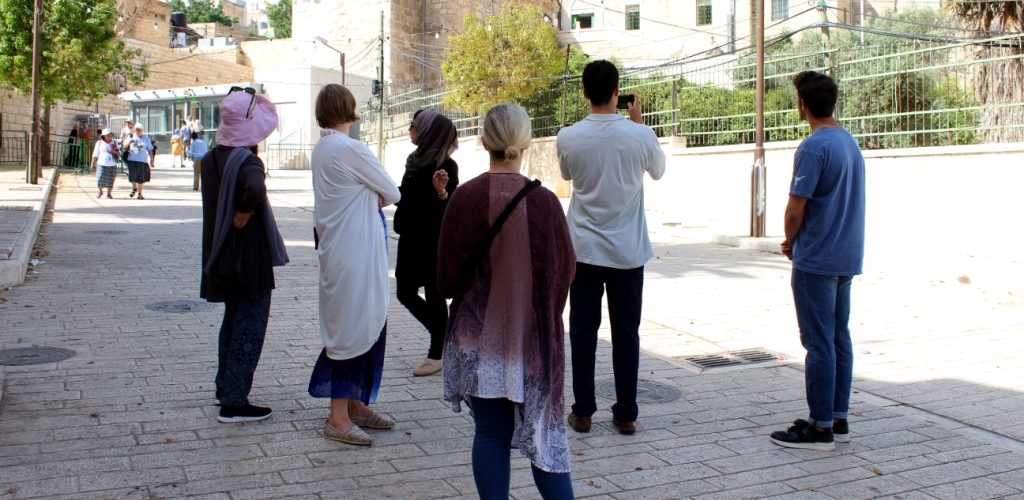The History of Hebron West Bank: When you read about Hebron, it may be difficult to determine exactly where the city is – is there one Hebron, or are there two? Where is the settlement and who lives there? Hebron is an ancient city with many historical, religious, and natural sites. It is thousands of years old, with archaeological discoveries dating back to the early Bronze Age.
The city is holy to Jews and Muslims alike, and there is both an (Israeli occupation) and Palestinian presence within the city. The long history of Hebron deserves its explanation, but the contemporary history of Hebron is important to know so that you understand what is going on as you explore. The division of Hebron is an intimidating concept at first, but after considering the history of the city, it is relatively simple to understand.
Table of Contents
British occupied all of historic Palestine – including Hebron
After the First World War, the British occupied all of historic Palestine – including Hebron. At the time, slightly more than half of the land was owned by Islamic charitable endowments (otherwise known as waqfs). Tensions between Palestinians and the Zionist movement culminated in a riot in late August 1929, in which over 60 Jewish residents of Hebron were killed. It is worth considering that over 400 Jewish residents were protected by their neighbors, who did not approve of the violence. During the Palestinian revolt against British occupation in 1936, the British Government moved the remainder of the Jewish community out of Hebron. These events have served as the pretext for the Israeli settlements in the old city of Hebron.
Hebron was taken over by Jordan
During the 1948 Arab-Israeli war, Hebron was taken over by Jordan, which ruled over the West Bank until the 1967 Six-Day War. Since June 1967, Israel has occupied Hebron and ruled over the area with a military government. During this period, the settlement of Hebron by Israelis began, a complex process inspired by religious sentiments, and the settlement of Hebron has had extreme effects on its Palestinian residents, who live under Israeli control without rights or citizenship. Palestinians are often harassed by settlers in Hebron who are frequently violent and confrontational towards them. Some people believe that Jews should own the entire old city of Hebron and that it would be a restoration of heritage.
Others advocate for living in peace with the Palestinians who live in Hebron. Others advocate for a complete pull-out of the Israeli settlements. In 2011, the Israeli Supreme Court itself ruled that there is no right to reclaim pre-1948 properties in areas such as Hebron, or to be compensated for losses, a ruling that, unsurprisingly, the settlers disagree with. Different descendants of the old Jewish community in Hebron have expressed the entire range of these views at one time or another, which is to say that opinions on the issue is far from being agreed upon among Israelis.
Hebron 1 and Hebron 2
In 1995, when the Oslo Agreement was reached and the Palestinian National Authority was created, the PA was given control over Palestinian cities, although Hebron was a different case. The 1997 Hebron Agreement split the city into two separate sectors: H2, which is the old city controlled by Israel, and H1, the majority of Hebron which is controlled by the PA.
The situation in H2 is tense – there are 30,000 Palestinians and about 700 Israelis who live under the control of the Israeli military. Israeli security measures that affect Palestinians (but not the settlers) include curfews, restrictions on movement, and the closure of Palestinian shops. The former main commercial area, ash-Shuhada Street (Martyr’s street in Arabic), was closed to Palestinians in 1994 after an American-Israeli settler killed 30 unarmed Palestinians and wounded 125 others while they were praying in the al-Ibrahimi Mosque/Cave of the Patriarchs.
The status of Hebron is a sensitive issue
As you can tell, the status of Hebron is a sensitive issue for everybody who lives here, and the disagreements between Palestinians and Israelis regarding what should happen with the city in the future are only made worse by the environment of the old city. While this is by no means a complete history of Hebron, a general understanding of the last century will help you to understand that there are strong feelings on both sides about what has happened in this city, and what will happen in its future.
